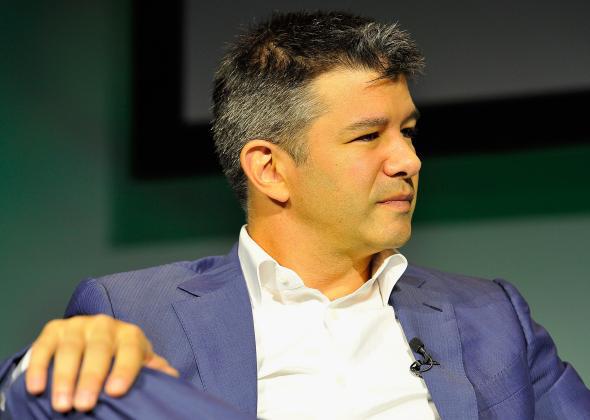After staying quiet on allegations that a senior Uber executive proposed funding opposition research against critical journalists, Uber chief executive Travis Kalanick took to Twitter to issue an apology, of sorts.
The arc in this Twitter statement is admittedly a bit strange. Kalanick thinks Michael’s comments were “terrible.” He says those comments display a “lack of leadership, a lack of humanity, and a departure from our values and ideals.” He says Uber should be focused on building a positive narrative to “inspire” riders and drivers, to show the “positive principles that are the core of Uber’s culture.” He promises to do “everything in my power” to earn trust from Uber’s community. So as many Twitter users have already pointed out: Doesn’t that start with firing Michael?
While Kalanick’s tweets don’t address Michael’s employment specifically, they definitely imply that he’ll be staying on. (I’ve emailed Uber to check, but no response yet). Kalanick is pulling from his own story here, admitting that he—so often a controversial figure—can learn from his mistakes, and so can Michael. Maybe the message Kalanick wants us to take away is that Uber believes in its employees and is willing to give second chances—so we should be too. Still, it’s hard to see how a company with “positive principles” at its core can retain a senior executive who its own CEO has decried for “a lack of humanity.”
As I wrote when this story first broke, it’s possible that Uber thinks that its user and funding numbers make it invincible—and it’s equally possible that it’s right. A #deleteuber campaign on Twitter and a wave of outrage in the press isn’t necessarily enough to prompt a mass exodus from Uber’s otherwise good and reliable service. And a $17 billion valuation is nothing to scoff at. Numbers-wise this might all blow over and barely ding Uber’s service.
Then again, Uber has lately seemed genuinely interested in not only its numbers, but also its image. This makes sense, given that the company isn’t just fighting for market share, but also trying to avoid any disastrous confrontations with regulators. Uber is widely regarded as the slick, aggressive, unapologetic counterpart to its main rival Lyft, which has carefully cultivated an upbeat, community-friendly persona. Kalanick knows he and Uber get a bad rap, but these days, he wants people to understand that, really, neither he nor the company is a bad guy. He doesn’t just want people to use Uber—he wants them to give its image a second chance. Odds are, it will take more than 14 tweets to make that happen.
